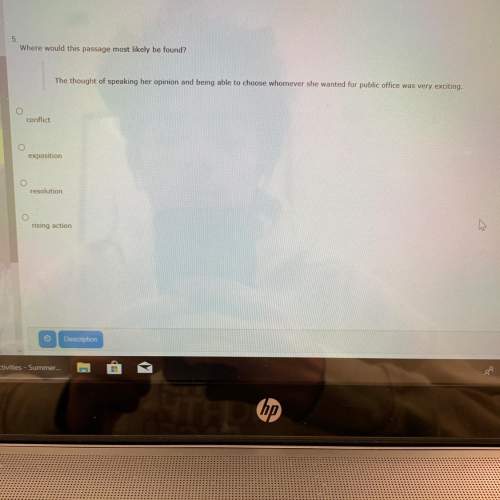
Since very early in life, you have been actively forming schemas--organized clusters of knowledge and information about particular topics. the topic can be almost anything--an event, an object, a situation, or a concept. for example, consider the schema you have for a typical kitchen. it probably includes food, a refrigerator, a toaster, sink, cabinets, silverware, and so forth. you started forming your kitchen schema early in life by gradually identifying the common elements first in your own kitchen, then in other people’s kitchens. over time, these common elements became associated and organized into a cluster of knowledge, producing the working schema you have for a kitchen.

Answers: 1
Other questions on the subject: English

English, 21.06.2019 17:00, swelch2010
Read the excerpt from black boy wright uses this personal experience to establish
Answers: 3

English, 21.06.2019 21:00, justin5163
Read the passage and choose the correct punctuation marks
Answers: 1

English, 22.06.2019 05:00, cheychey021203
How was don quixote different from the literature before it? how did it signal a change in the history of literature? your answer should contain at least one hundred words.
Answers: 2

English, 22.06.2019 11:00, asiaosterling
Title the ramayana introduction hook (first sentence that captures the reader): connection/transition to thesis (brief summary of stories): thesis statement the ramayana the author uses indirect and direct characterization to depit the character sita as being beautiful, emotional, and quick to do things without thinking. : body paragraph 1 topic sentence (summary of paragraph): quote (don’t forget in-text citation): explanation of quote (connect it to thesis): end sentence to wrap up idea: body paragraph 2 topic sentence (summary of paragraph): quote (don’t forget in-text citation): explanation of quote (connect it to thesis): end sentence to wrap up idea: body paragraph 3 topic sentence (summary of paragraph): quote (don’t forget in-text citation): explanation of quote (connect it to thesis): end sentence to wrap up idea: conclusion reword thesis statement (not exact wording): summarize main idea (two-ish sentences summing up your topic sentence points): final thought (leave your reader with a big idea to take away): works cited last name, first name. "title of story." title of collection, edited by editor's name(s), publisher, year, page range of entry.
Answers: 1
Do you know the correct answer?
Since very early in life, you have been actively forming schemas--organized clusters of knowledge an...
Questions in other subjects:

Mathematics, 24.08.2019 03:30

History, 24.08.2019 03:30

English, 24.08.2019 03:30


History, 24.08.2019 03:30




Biology, 24.08.2019 03:30

History, 24.08.2019 03:30







